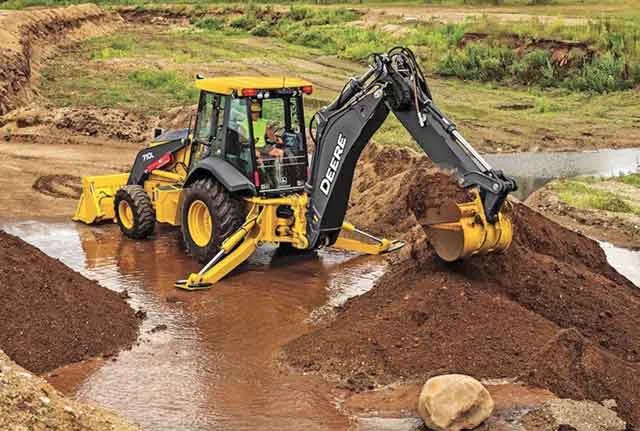Best Dump Truck Companies in Ohio - Top-Rated Dump Truck Providers
Best Dump Truck Companies in Ohio - Top-Rated Dump Truck Providers
Blog Article
Comprehensive Excavation Techniques: Understanding the Fundamentals for Success
The cautious preparation, specific implementation, and thorough focus to information required in excavation projects demand a detailed method that includes different essential elements. The real mastery lies not just in recognizing these basics however in seamlessly incorporating them to browse the complexities of excavation projects with skill.
Comprehending Excavation Job Planning

The first stage of any excavation task is the planning phase, where important choices are made that can substantially influence the outcome of the project. Recognizing the job timeline, spending plan, and extent restraints is crucial for producing a detailed excavation plan that makes sure the task's success.
One key aspect of excavation job planning is the growth of a comprehensive timeline that details the sequence of tasks, target dates, and turning points. This timeline acts as a roadmap for the job team, allowing them to track progression and make necessary modifications to make sure the task remains on routine. In addition, a well-defined budget that accounts for all expenditures, including devices service, labor costs, and materials, is essential for avoiding cost overruns and delays. By thoroughly considering all these variables throughout the preparation stage, excavation jobs can be implemented efficiently and properly, causing effective end results.
Soil Evaluation and Website Assessment
Conducting thorough soil analysis and website assessment is an essential step in the preparation phase of any excavation task. Dirt evaluation involves identifying the composition, framework, and properties of the dirt at the excavation website. This details is vital for understanding the soil's bearing ability, moisture content, and potential for disintegration, which are key elements in identifying the excavation techniques and tools needed for the task.
Website evaluation surpasses soil analysis and includes a broader evaluation of the total website problems. This examination includes determining any potential risks, such as underground energies, ecological worries, or unsteady terrain, that could impact the excavation procedure. By extensively assessing the site, task managers can develop effective excavation techniques that prioritize safety, effectiveness, and environmental management.
Making use of sophisticated innovations like ground-penetrating radar, soil tasting, and drone surveys can enhance the precision and efficiency of soil analysis and site examination. Investing time and resources in these initial steps can ultimately conserve time and protect against expensive delays or complications throughout the excavation process.
Equipment Option and Use
Efficient excavation tasks rely heavily on critical equipment choice and utilization to guarantee optimal efficiency and productivity. Picking the best tools for the job is essential in making best use of effectiveness and minimizing downtime. Factors such as the kind of dirt, depth of excavation, and task scope play a considerable role in identifying the most appropriate tools for the task at hand.

In enhancement to picking the suitable tools, proper use is key to project success. Operators should be educated to handle the equipment safely and successfully - lancaster trenching. Normal upkeep checks and prompt fixings assist stop malfunctions and make certain regular efficiency throughout the project
Safety And Security Procedures and Rules Compliance
In the world of excavation projects, prioritizing safety measures and conformity with policies is paramount to ensuring a legitimately audio and secure functional setting. Precaution include a variety of methods, including conducting detailed website evaluations, executing proper signs and obstacles, and giving ample security training for all employees associated with the excavation process. Adherence to policies, such as OSHA demands in the United States, guarantees that the excavation click now job meets the needed standards to protect employees, onlookers, and the surrounding atmosphere.

Tracking Progress and Adjusting Methods
Just how can forecast supervisors efficiently track the advancement of excavation projects and adjust their techniques appropriately to enhance outcomes? Surveillance development is vital for making certain that excavation jobs remain on track and article source meet due dates.

Verdict
To conclude, understanding the fundamentals of extensive excavation approaches is vital for the success of any job. By understanding job preparation, analyzing soil and website problems, choosing suitable tools, following security policies, and keeping an eye on progress, task supervisors can make certain a reliable and smooth excavation process. Carrying out these strategies will certainly bring about successful end results and reduce possible dangers or setbacks during the excavation project.
The first stage of any excavation job is the planning phase, where vital choices are made that can significantly affect the end result of the task. Recognizing the job budget, scope, and timeline restraints is critical for producing a detailed excavation strategy that ensures the job's success.
Just how can predict managers efficiently track the innovation of excavation tasks and adapt their techniques appropriately to optimize results? By carefully checking progress and being willing to adapt approaches, project managers can enhance the overall success of excavation projects.
By understanding project planning, evaluating soil and site conditions, selecting appropriate devices, conforming with safety and security regulations, and keeping track of progression, task managers can guarantee a effective and smooth excavation procedure.
Report this page